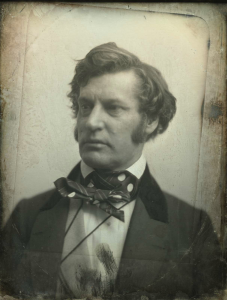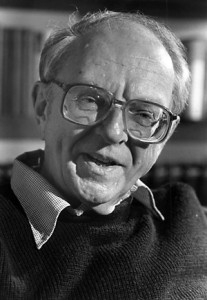Of Charles Sumner, David Donald, and Used Bookstores

The young Charles Sumner
The serendipity of the used bookstore — its ability to provide unexpected pleasures — is gaining attention recently. Even the Washington Post (owned by Amazon billionaire Jeff Bezos) has noticed. I offer Exhibit A in support.
Last month, at the recently-expanded Rockville store of the Friends of the Library of Montgomery County, I snapped up a copy of Charles Sumner and the Coming of the Civil War, by David Donald.
Okay, it’s not for everyone, but this book scratched a couple of itches I had almost forgotten I had. First, the abolitionist Sumner has been an elusive figure for me. He’s most famous as an orator in the Senate in the Civil War era, but oratory is a talent that does not survive well from the pre-film age. He’s also famous for being caned on the Senate floor by a Southern congressman, Preston Brooks, who was enraged by Sumner’s insulting remarks about a relative. Sumner suffered serious injuries, which the medical profession of the day made much worse.
When I researched Sumner for my book on the Andrew Johnson impeachment trial, Impeached, I was surprised to find that the Massachusetts senator was such a non-factor in the impeachment process and in Congress. He held himself aloof from the legislative process and wrote virtually no legislation. He had little influence with his peers. So why was he so famous? For getting beaten up? It puzzled me.
I may have galloped through David Donald’s biography of Sumner as part of my research, but research for a book is not the same as pleasure reading. When I’m researching a book, I’m looking for information that can inform or undermine my understanding of events. I’m not savoring the book.

Historian David Donald
That David Donald took the trouble to study Sumner and write about him — in a 2-volume biography, no less — was intriguing, but so are many subjects. I never circled back to read the book at leisure.
A word about Professor Donald. Historians’ work tends not to survive their lives. There’s always someone else willing to write about the same subject and the later work will often seem more current and better-informed. The march of progress and all that. Yet Donald’s work commands attention still. His one-volume biography of Lincoln is the absolute best book on that topic that I know. It’s comprehensive, thoughtful, sympathetic, warm, and not exhausting.
And on a personal note, Donald wrote a generous evaluation of my Impeached, just a few weeks before his death in 2009, so I have harbored warm feelings toward him ever since.
What would this wise student of history do with the puzzle of Charles Sumner? I was delighted to find that he approached his subject with a bracing candor. He didn’t exalt his subject, even prominently featuring a contemporary judgment that Sumner was slow in debate, “never ready at a retort, [and] tacked slowly, like a frigate, when assaulted.”
Sumner also was “almost impervious to a joke,” which helps explain why I never warmed to him. In Donald’s words, “If a sense of humor is a handicap in American political life, Sumner was singularly unencumbered.” Sumner himself boasted that he had never made a joke in any of his hours-long orations: “You might as well,” he said, “look for a joke in the book of Revelations.”
So why did Sumner matter? In Donald’s telling, Sumner proved to be a perfect expression of Boston’s moral denunciation of slavery, even though much of the Boston aristocracy disliked him. He was a fine orator, though Donald emphasizes that none of his speeches included a new idea. Sumner processed and promoted the ideas of others.
And only Sumner was so self-righteous, and so tone-deaf to interpersonal relationships, that he was willing to insult Southern slaveholders until one lost his self-control entirely and made Sumner a national martyr. Though not a skilled political player on the national scene, he became a symbol of the abolitionist cause. Symbols can be very powerful.
And that’s why used bookstores are so great! You never know what you may find.
I had thought of Charles Sumner as a key player in the lead up to, and during and after the Civil War, and thought of him as one of the heroes of his time and someone worthy of admiration today. I also thought Lincoln admired Sumner and told him those who pushed for emancipation were just 6 weeks ahead of him. Thank you for presenting a different view of Sumner for me to think and read about.